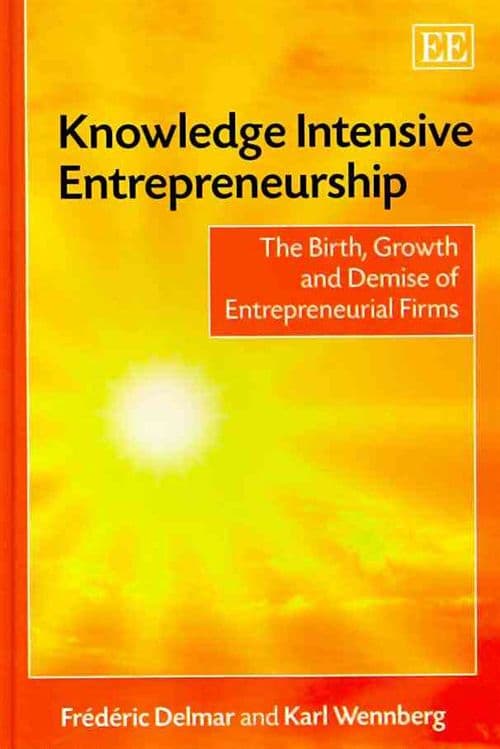
Knowledge Intensive Entrepreneurship
Abstract
How and why are firms created, expanded and terminated by entrepreneurs in the knowledge intensive economy? The authors show these entrepreneurship processes are firmly embedded in a given social and economic context, that shapes the process by which some individuals discover entrepreneurial opportunities, creating new firms that sometimes grow to remarkable size, but more often stay mundane or eventually exit.
The authors expertly provide a theoretical and empirical examination of new knowledge intensive firms over their whole life cycle using a unique set of matched employee–employer data containing over three million individuals and over 200,000 firms. With theoretical pillars anchored in industrial organization economics, evolutionary organization theory, and entrepreneurship research, this book presents a detailed investigation of the entrepreneurial processes of firm entry, growth, and their eventual demise.
This insightful book will prove to be invaluable for business policymakers as well as postgraduate students and researchers in management, economics, and entrepreneurship.
Delmar, F. & Wennberg, K. (2010). Knowledge Intensive Entrepreneurship – The Birth, Growth and Demise of Entrepreneurial Firms. Cheltenham, UK: Edward Elgar.

Description
‘Knowledge Intensive Entrepreneurship taps into a growing trend of entrepreneurship research which recognises that not all start-ups are the same – and specifically that knowledge-intensive firms are important drivers of economic development. By focusing on the birth, growth and exit of knowledge-intensive firms, this book is a valuable addition to the literature which should be of vital interest to scholars and policy-makers alike.’
– Simon C. Parker, The University of Western Ontario, Canada
Details
- Author
- Delmar, F. & Wennberg, K.
- Publication year
- 2010
- Published in
